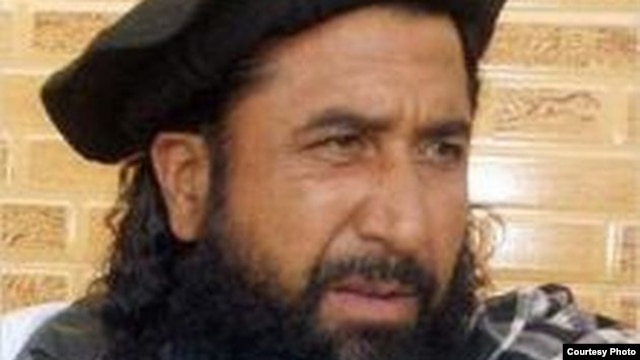Pakistan, Afghanistan say Taliban prisoners to be freed
| Publisher | Radio Free Europe/Radio Liberty |
| Publication Date | 15 November 2012 |
| Cite as | Radio Free Europe/Radio Liberty, Pakistan, Afghanistan say Taliban prisoners to be freed, 15 November 2012, available at: https://www.refworld.org/docid/50b4d0c6c.html [accessed 28 May 2023] |
| Disclaimer | This is not a UNHCR publication. UNHCR is not responsible for, nor does it necessarily endorse, its content. Any views expressed are solely those of the author or publisher and do not necessarily reflect those of UNHCR, the United Nations or its Member States. |
Last updated (GMT/UTC): 15.11.2012 05:49
By RFE/RL's Radio Mashaal and RFE/RL's Radio Free Afghanistan
 Mullah Abdul Ghani Baradar was arrested in Pakistan's southern city of Karachi in February 2010.
Mullah Abdul Ghani Baradar was arrested in Pakistan's southern city of Karachi in February 2010.
Pakistan's Foreign Ministry has posted a statement indicating that an unspecified number of Pakistani-held Taliban prisoners "are being released."
The posting was a joint press statement from Pakistan's Ministry of Foreign Affairs and the High Peace Council of Afghanistan.
It said the release was being made at the request of the Afghan side "to advance the reconciliation process."
The two countries hope the gesture will convince the Taliban to enter into negotiations on ending hostilities and forming a government for Afghanistan that would include as many of the country's major factions as possible.
Aimal Faizi, an Afghan presidential spokesman, told RFE/RL's Radio Free Afghanistan that Kabul welcomes Pakistan's decision. Faizi expressed hope the freed Taliban would join the peace process.
Western news report that up to seven Afghan Taliban members have been released. They are described as mid- and low-level fighters.
Seeking Peace Talks
An Afghan delegation headed by Salahuddin Rabbani is in Islamabad seeking the release of senior Taliban leaders including commander Mullah Abdul Ghani Baradar, who was arrested in Pakistan's southern city of Karachi in February 2010.
The peace process in Afghanistan will mainly depend on possible talks between the Afghan government and leaders of the Taliban insurgency, some of whom are based in Pakistan.
Baradar is considered a key figure capable of winning over a large number of Taliban insurgents.
Washington and its allies fighting in Afghanistan are pushing for a peace deal with the Taliban so they can pull out most of their troops by the end of 2014 without the country descending into further chaos.
But earlier this year, the Taliban pulled out of direct contacts with Washington after the insurgents established a contact office in the Persian Gulf state of Qatar.
Now, Pakistan is seen as key to reviving the peace process. Islamabad has ties to the Taliban that date back to the 1990s.
Many of the group's leaders are believed to be based on Pakistani territory, having fled there following the U.S.-led invasion of Afghanistan in 2001.
With reporting by Reuters, BBC, and Al-Jazeera
Link to original story on RFE/RL website
